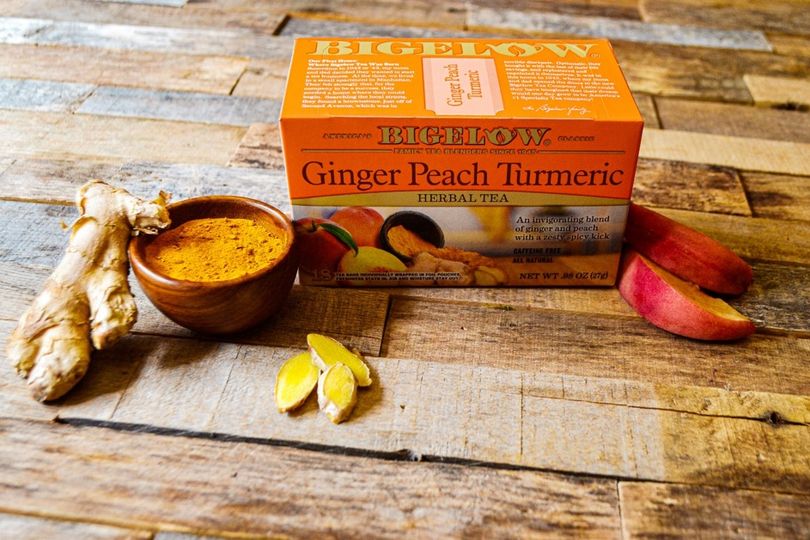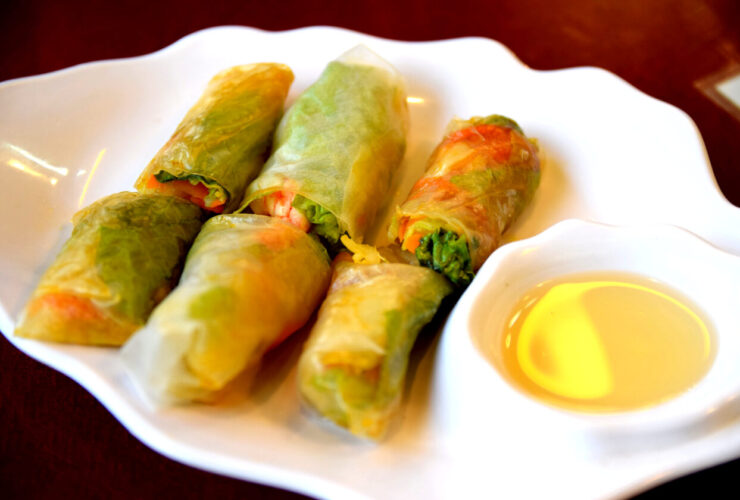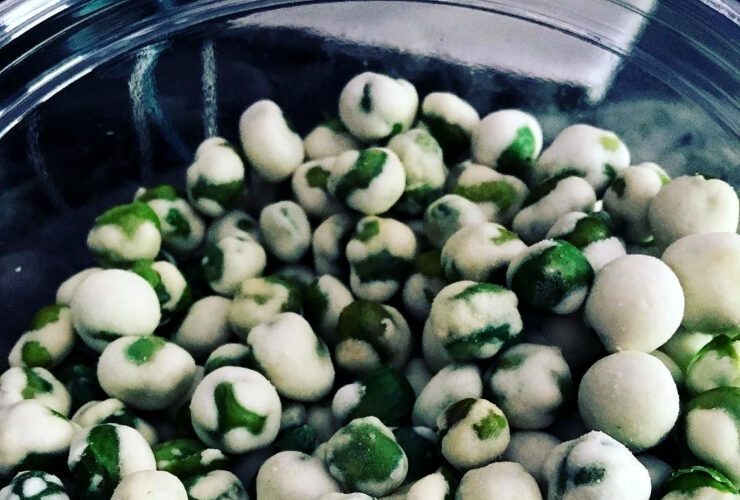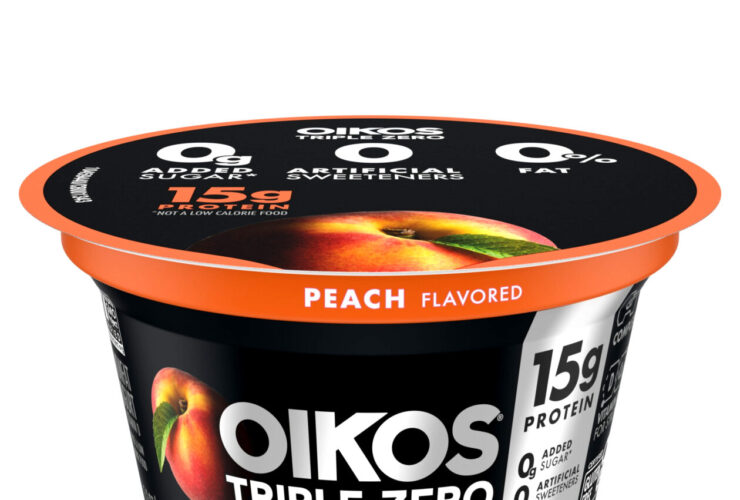Introduction
Tea is a basic drink that is enjoyed by millions of people worldwide. It is an ancient beverage that is valued across many cultures. With its diverse range of tastes and long history, tea has become one of the most popular drinks in the world. More than three billion cups of tea are consumed daily, providing a wonderful experience and many possible health benefits. With its rich cultural history, from formal Japanese tea rituals to informal English afternoon teas, tea has enormous artistic value.
Fruit-flavored teas have been increasingly popular in recent years, attracting the attention of tea connoisseurs with their distinctive flavors and fragrant blends. Fruit-infused teas have become a popular substitute for conventional varieties, providing a taste explosion and extra health advantages. Of these, ginger peach turmeric tea is a standout option since it combines the health-promoting properties of turmeric with the warmth of ginger and the sweetness of peaches. This blend offers a fresh perspective on herbal infusions while satisfying tea consumers’ changing tastes.
Ginger peach turmeric tea has become a noteworthy combination in fruit-flavored teas. This tea provides a well-rounded experience for those looking for both taste and health advantages. It is made from an aromatic blend of black tea leaves, natural ginger flavor, and peach flavor. Ginger peach turmeric tea, often made with natural ingredients, herbs, and fresh, dry fruits, is a healthy beverage alternative in line with the growing demand for such options. We will examine the answer to a commonly asked question as we delve into what makes this mix special: “What is ginger peach turmeric tea good for?” Watch this space to learn about the plethora of advantages this tea offers.
What Is Ginger Peach Turmeric Tea?
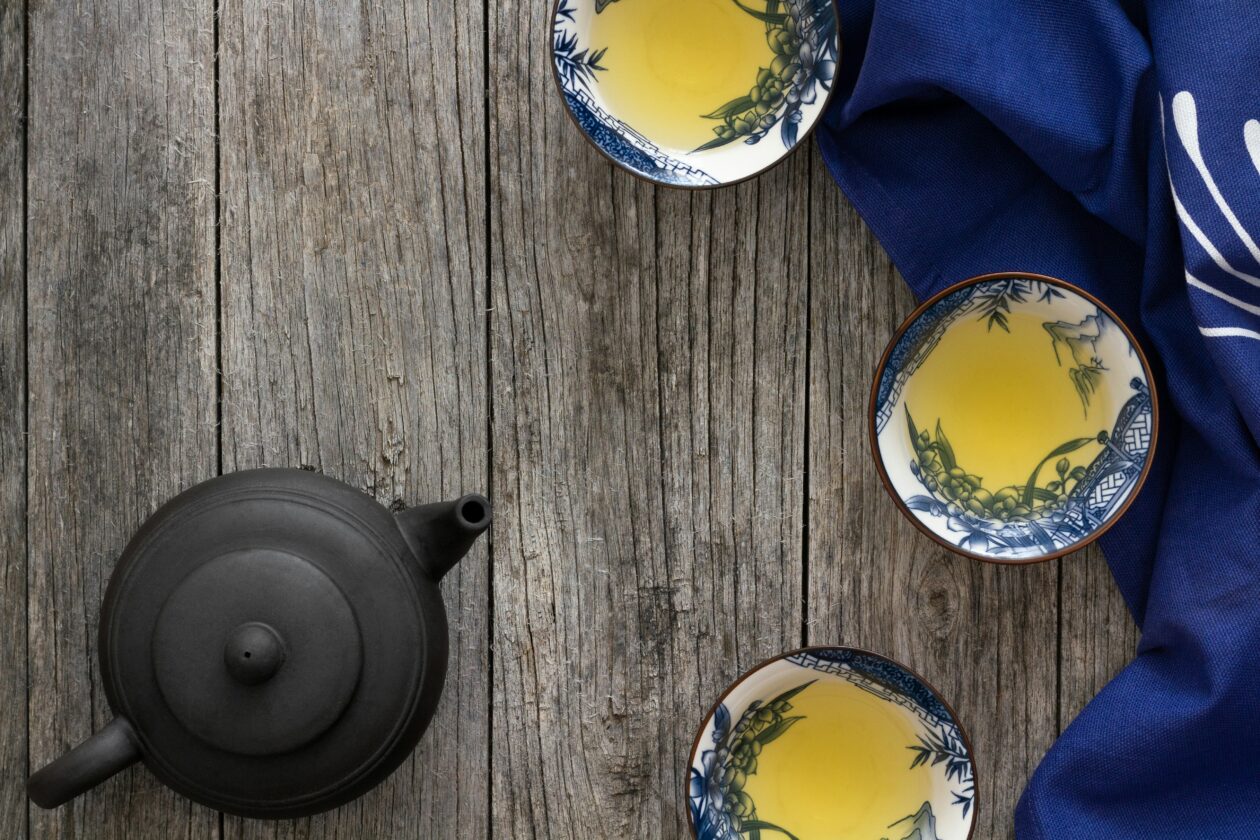
The boldness of black tea, the energizing spice of ginger, the sweetness of peaches, and the health-promoting qualities of turmeric come together in an enthralling blend to create ginger peach turmeric tea. A tasty beverage that appeals to people looking for a joyful and health-conscious tea experience is produced by this harmonious blend. Ginger peach turmeric tea, well-known for its flavor and aroma characteristics, has emerged as a top option for tea connoisseurs seeking an unusual and healthful blend.
Ginger peach turmeric tea is expertly crafted, combining delicious peach flavors, natural ginger extracts, black tea leaves, and the golden tint of turmeric. These components combine to create a tea that invigorates the senses and offers a comprehensive experience. The boldness of black tea, the warmth of ginger, and the sweet notes of peach produce a well-rounded flavor profile. Turmeric, on the other hand, adds an earthy note and may have health advantages that enhance the taste of the mixture.
Reputable companies that use fresh and natural ingredients are a significant differentiator of high-quality ginger peach turmeric tea. Many possibilities are available in the tea market, but selecting a mix made by reliable producers guarantees a real and fulfilling experience. Reputable companies emphasize using natural ginger, peaches, and turmeric while avoiding fake ingredients. This dedication to quality highlights the possible health benefits of drinking tea manufactured from pure and healthful ingredients and improving the tea’s flavor. Choosing brands committed to authenticity as you delve deeper into ginger peach turmeric tea will enhance your tea-drinking experience.
What Is Ginger Peach Turmeric Tea Good For?
The delightful flavor of ginger peach turmeric tea is just the beginning as we explore its possibilities. There are many health benefits associated with the combination of ginger, turmeric, and peaches, including heart health support. The well-known health benefits of turmeric and ginger may include reducing cholesterol and blood pressure. Because of their natural ingredients, peaches may help lower the risk of heart disease by improving blood flow. It’s not just a lovely tea experience; it also subtly promotes heart health.
A. Warm, Soothing Flavor
The flavor profile of ginger peach turmeric tea is well-balanced, blending the earthiness of turmeric, the sweetness of peaches, the warmth of ginger, and the boldness of black tea harmoniously. This well-balanced mix is calming and fragrant, which makes it a great option for tea lovers. This tea’s adaptability to different seasons is evident; it can be enjoyed hot in the winter or cold in the summer as an iced tea.
B. Gingerol
The key ingredient of ginger peach turmeric tea is gingerol, a bioactive substance in ginger that has been shown to have digestive advantages. Gingerol has anti-inflammatory qualities in addition to helping with digestion. People can benefit from the tasty infusion and improve their digestive health by regularly consuming this tea.
C. Treats Nausea
Turmeric tea with ginger is well known for its ability to reduce nausea and is a natural cure. It’s crucial to remember that expecting women should use caution and speak with a doctor before introducing this tea into their regimen.
D. Weight Loss
Ginger peach turmeric tea can be a useful ally for people trying to lose weight. Without using artificial sweeteners, this tea offers a tasty substitute. Adding ginger may help with weight loss objectives by lowering elevated blood insulin levels.
E. Lowers Blood Sugar Levels
Research indicates that ginger may have anti-diabetic qualities, and turmeric is well-known for helping to regulate blood sugar. Consequently, drinking ginger peach turmeric tea could help keep blood sugar levels in check.
F. Helps with Digestion
This tea addresses common digestive problems and provides mild, all-natural treatment for indigestion and delayed digestion. The components work together harmoniously to support a healthy digestive tract.
G. Anti-Inflammatory and Antioxidant Properties
Strong antioxidants added by the peach and turmeric enhance the tea’s general health benefits. Particularly, the curcumin found in turmeric is known to have potent anti-inflammatory properties.
H. Antimicrobial Properties
Antimicrobial qualities are added to tea with peach leaves, potentially improving health. Examining these combinations might provide a comprehensive approach to health.
To sum up, ginger peach turmeric tea proves to be more than just a tasty drink. This tea is a pleasant and nutritious option for people looking for taste and wellbeing because of its many benefits, including its potential to promote digestion, reduce inflammation, and its calming flavor.
Ginger Peach Turmeric Tea Recipe
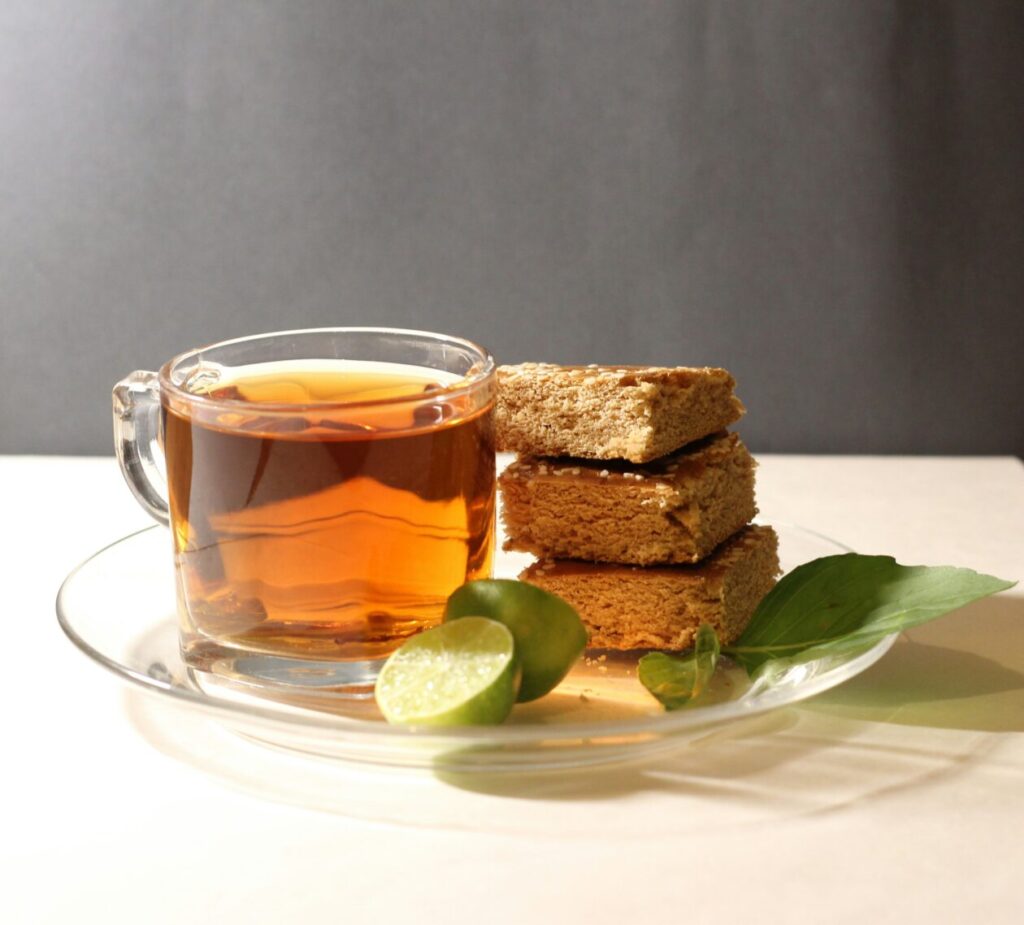
Creating your delightful cup of ginger peach turmeric tea is a simple and rewarding experience. Follow this easy recipe to enjoy the enticing blend of flavors in the comfort of your home.
Ingredients:
- Black tea leaves or tea bags
- Fresh ginger slices
- Ripe peaches or peach slices
- Ground turmeric
Instructions:
- Boil water and steep black tea leaves or bags according to your preference.
- Add fresh ginger slices to the steeping tea for a warm, aromatic essence.
- Incorporate ripe peaches or peach slices, allowing the natural sweetness to infuse into the brew.
- Sprinkle ground turmeric for that golden hue and an extra layer of health benefits.
- Let the tea steep for a few minutes, adjusting the intensity of flavors to your liking.
- Strain the tea and enjoy your homemade ginger peach turmeric tea. You can also add honey or lemon for an added twist.
Savor the unique combination of ingredients in every sip, bringing warmth and wellness to your tea-drinking ritual.
How to Brew Ginger Peach Turmeric Tea at Home
When made at home, the deliciousness of ginger peach turmeric tea is much more delightful. Gather premium loose black tea leaves, ground turmeric, ripe peaches, and fresh ginger first. Use a teaspoon of black tea leaves, a few ginger slices, a few peach slices, and a pinch of turmeric for a single serving.
Bring the water to a slow boil to extract all the flavors and benefits. Pour boiling water over the tea leaves and sliced ingredients in a teapot or infuser. Let the mixture steep for three to five minutes, modifying the steeping time according to your desired intensity. The earthy undertones of turmeric, the sweetness of the peach, and the warmth of the ginger are all well captured in this deliberate infusion of tea.
Explore various brewing methods to personalize your ginger peach turmeric tea experience. Try making the tea and letting it cool for a delicious iced version for a cool variation. Alternatively, you can make this wellness-infused beverage a cozy treat by adding a dash of your preferred milk for a creamy latte.
To sum up, making ginger peach turmeric tea at home is a fun and satisfying project. Stressing the use of natural, fresh ingredients enhances the flavor of this aromatic combination and its possible health advantages.
Bigelow Ginger Peach Turmeric Tea Ingredients
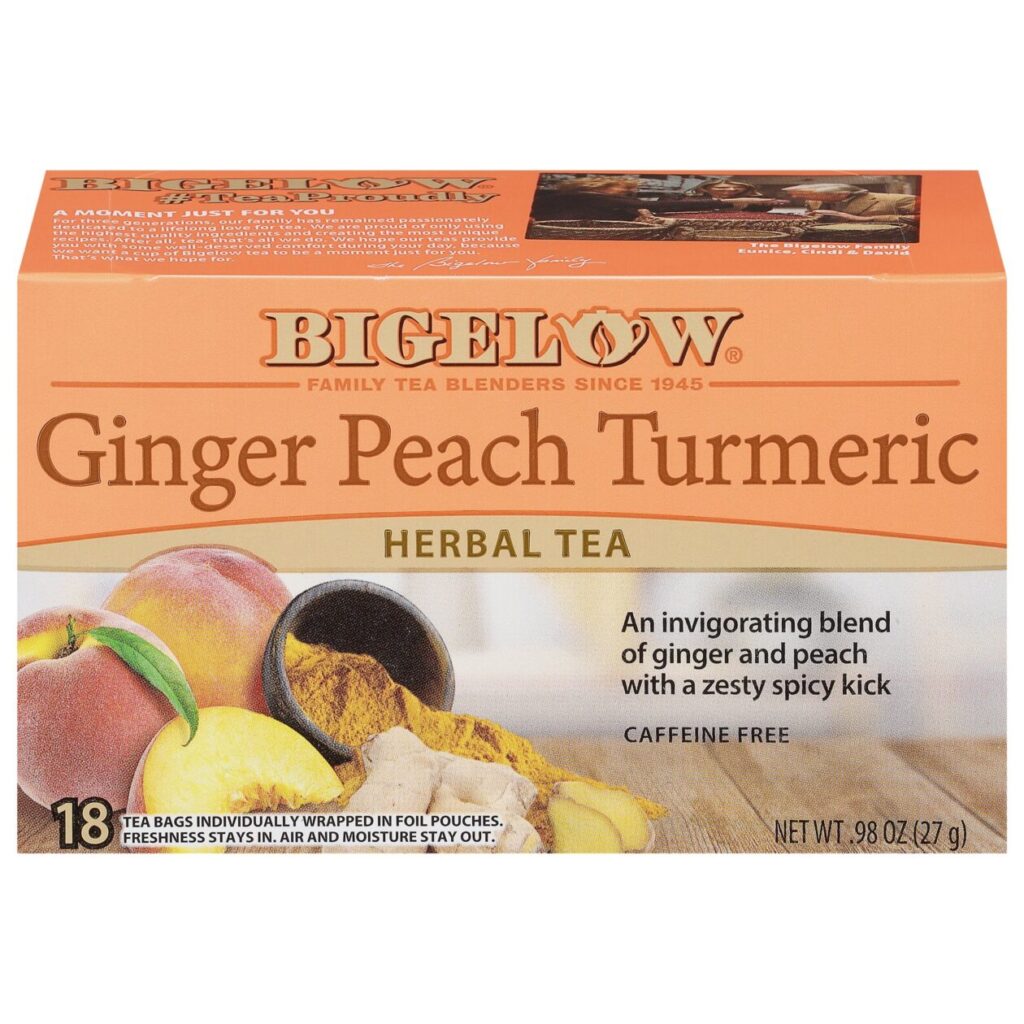
Explore the delicious combination of flavors found in Bigelow’s Ginger Peach Turmeric Tea. Carefully crafted to provide a distinct and fulfilling flavor character, every ingredient contributes to the creation of this fragrant mixture.
Ingredients:
- Rosehips
- Ginger
- Apples
- Natural peach and cayenne pepper flavors with other natural flavors
- Chamomile
- Hibiscus
- Turmeric
- Chicory root
- Cinnamon
- Cardamom
- Anise
- Allspice
- Black pepper
- Orange peel
- Peaches
This carefully curated combination brings together the warmth of ginger, the sweetness of peach, and the earthy notes of turmeric. The result is a harmonious tea that not only tantalizes the taste buds but also offers a wealth of potential health benefits. Indulge in a cup and experience the richness of these thoughtfully selected ingredients.
Popular Variations of Ginger Peach Turmeric Tea

Beyond its traditional version, ginger peach turmeric tea’s adaptability lets tea connoisseurs experiment with several imaginative twists. To enhance the sensory experience, a popular version entails infusing the blend with aromatic spices such as cloves or cinnamon. This presents new health benefits linked to these spices and enriches the flavor.
The iced ginger peach turmeric tea is a delicious option for anyone looking for a cool change of pace. Just steep the tea, allow it to cool, and pour it over ice for a refreshing drink ideal for warmer weather. Furthermore, consider transforming your tea into a decadent latte by adding a dash of milk or a dairy-free substitute if you like a creamier texture.
Infuse ginger peach turmeric tea with the robust and spicy flavors of a spicy chai mix to elevate it to new heights. While the tea leaves and other ingredients are steeping, add classic chai spices like cardamom, black pepper, and cloves. The health benefits of ginger, peach, and turmeric are combined with the energizing warmth of chai spices to create a truly pleasant cup of tea.
In conclusion, you can customize your tea-drinking experience to your taste by investigating the popular ginger peach turmeric tea varieties. Whether you go for the spicy chai infusion, the cool iced version, or the rich latte, each provides a great opportunity to experience the distinct flavor combination.
Ginger Peach Turmeric Tea Nutrition Facts
Discover the nutritional essence of Bigelow’s Ginger Peach Turmeric Tea, a delightful blend crafted with a mindful selection of ingredients.
Ingredients:
- Rose hips
- Ginger
- Apples
- Natural peach and cayenne pepper flavors with other natural flavors
- Chamomile
- Hibiscus
- Turmeric
- Chicory root
- Cinnamon
- Cardamom
- Anise
- Allspice
- Black pepper
- Orange peel
- Peaches
Nutrition Facts per 8 Fluid Ounces:
- Calories: 0 cal
- Calories from Fat: 0 cal
- Total Fat: 0 gram (0% Daily Value)
- Sodium: 0 mg (0% DV)
- Carbohydrate: 0 gram (0% DV)
- Dietary Fiber: 0 gram (0% DV)
- Sugar: 0 gram
- Protein: 0 gram
- Calcium: 0 mg (0% DV)
- Iron: 0 mg (0% DV)
- Potassium: 0 mg (0% DV)
- Vitamin A: 0 mcg (0% DV)
- Vitamin C: 0 mg (0% DV)
- Zinc: (% DV not specified)
Flavor Profile:
- Taste Profile: Rich, sweet peach taste with an earthy turmeric and spicy ginger finish
- Aroma: Sweet, fragrant peach flavor with spicy ginger and turmeric undertones
- Liquor: Light orange/yellow
Indulge in the goodness of this tea while being mindful of its zero-calorie composition, making it a delightful and health-conscious beverage choice.
Precautions and Considerations
Although ginger peach turmeric tea has several health benefits, it’s important to consider personal tolerances. Some people may react more strongly to particular substances, including turmeric or ginger, which could cause a little pain. If tea is well accepted, starting with a modest amount is best to see how your body reacts and then progressively increase consumption.
Take into account any possible drug interactions before adding ginger peach turmeric tea to your regular regimen, particularly if you are on medication. Interactions between ginger and turmeric may impact the effectiveness of several drugs. Speak with your healthcare practitioner if you have any concerns or are taking prescription medication to be sure the tea will support your treatment plan without having any negative effects.
Ginger Peach Turmeric Tea While Pregnant
Those who are expecting should use caution when consuming ginger peach turmeric tea. Even though ginger is well-known for its anti-nausea qualities, taking too much of it while pregnant might not be a good idea. It would help to speak with a healthcare provider before including this tea in your pregnancy routine. Furthermore, it is imperative to exercise caution and seek medical advice for persons with a history of allergies to any ingredients, including peach or ginger, to prevent bad reactions.
In conclusion, even though ginger peach turmeric tea has many health benefits, it’s important to be mindful of personal tolerances, possible medicine interactions, and particular precautions for allergy sufferers and pregnant women. You can consume tea safely and enjoy it by following these safety measures.
Additional Information and FAQs
A. Common Questions About Calories, Caffeine, and Preparation
Calories: Ginger peach turmeric tea has a low-calorie count, which makes it a good option for people managing their consumption of calories. A cup, on average, has very few calories, making it a tasty and healthful choice.
Caffeine level: This tea stands out for having a generally low caffeine level. Ginger peach turmeric tea is a great option for those looking for a soft- or no-caffeine beverage. It can, therefore, be consumed at any time of day, including in the evening.
Preparation: Making a delicious cup of turmeric and ginger tea is simple. Bring water to a boil, steep the tea bag for three to five minutes, and savor. For added flavor, some lovers could decide to add honey or lemon. Customization according to individual taste preferences is possible by experimenting with steeping times.
B. Your FAQs Answered
What do ginger and peach tea do?
The tea with ginger and peach is a lovely combination of flavors and scents. The sweet tones of peach and ginger, which help with digestion and lessen nausea, make for a calming and delightful cup of tea. These ingredients create a pleasant beverage that may benefit your digestive system.
How often should I drink turmeric and ginger tea?
The frequency of consuming ginger tea and turmeric varies depending on personal tastes and health factors. If there are no particular contraindications for the person, having a cup of turmeric and ginger tea daily is normally fine. Moderation is essential; expert advice can be obtained from a healthcare provider.
Can I drink turmeric ginger tea at night?
Of course! Caffeine-free turmeric ginger tea, like the caffeine-free Atomic Gold blend, is a good option for evening consumption. After a demanding day, sip on this soothing tea in the evening to help you rest and decompress.
Is it OK to drink turmeric and ginger tea every day?
Drinking turmeric and ginger tea daily is generally acceptable if a person has no particular health issues or contraindications. Because of their potential health benefits, ginger and turmeric can be a tasty and health-conscious addition to your daily routine.
What is the best time to drink turmeric and ginger tea?
Any time of day is a good time to enjoy tea with ginger and turmeric. Some find it a calming option for the evening, while others like it to start their day in the morning. The ideal moment will vary depending on personal tastes and when the person feels it enhances their daily schedule.
How long does it take for turmeric and ginger tea to work?
Individual differences may exist in the time it takes for the effects of turmeric and ginger tea to manifest. Some people could feel better immediately after consuming the food, while others might see changes gradually over time. Consuming these substances consistently is frequently essential to reaping their potential health advantages.
Who should not drink turmeric ginger tea?
Before frequently taking turmeric ginger tea, people with certain medical issues or allergies should use caution and speak with a healthcare provider. Those known to be allergic to these components or pregnant should consult a doctor for specific guidance.
Can turmeric and ginger burn belly fat?
Although ginger and turmeric have been linked to several possible health advantages, such as anti-inflammatory qualities, it is unclear how specifically they can burn belly fat. These components might be used with a healthy diet and frequent exercise to support a balanced lifestyle.
Does turmeric stain teeth?
Natural pigments found in turmeric have the potential to discolor teeth. However, these stains are typically transient and can be avoided by oral hygiene. Regular dental care and brushing your teeth after drinking turmeric tea might help lessen or prevent discoloration.
When not to take ginger?
Ginger consumption should be used with caution by people who are taking certain medications or who have certain medical conditions. Before using ginger supplements, people with gallstones or undergoing surgery should speak with a healthcare provider as it may interfere with blood thinners.
Can I drink turmeric tea on an empty stomach?
Many people find drinking turmeric tea on an empty stomach is generally safe. On the other hand, people with sensitive stomachs might feel uncomfortable, so if you’re prone to digestive problems, you should take it with food. The ideal method for introducing turmeric tea into your routine can be ascertained by paying attention to your body’s reaction.
Is turmeric tea better at night or in the morning?
One can drink turmeric tea in the morning or at night, depending on personal tastes. Some find it energizing in the morning, while others value its relaxing qualities at night. You can determine when it fits your daily routine by experimenting with the two times.
Is it OK to drink turmeric tea every day?
As long as there are no unique health issues or contraindications for the person, drinking turmeric tea daily is OK. Due to its possible anti-inflammatory and antioxidant qualities, turmeric is a tasty and health-conscious option that may be consumed regularly. Moderation is essential with any dietary adjustment, and seeking the advice of a healthcare provider can provide specific recommendations.
C. Additional Details About Ingredients, Quality, and Potential Side Effects
Black tea, ginger, peach, and turmeric are combined to create ginger peach turmeric tea, which results in a flavorful and aromatic brew. Reputable companies place a high value on natural and fresh ingredients, which raises the tea’s overall quality.
Assurance of Quality: Reputable companies frequently stress using natural, fresh ingredients to preserve the tea’s authenticity and health advantages. Verifying certificates and product reviews might help direct buyers toward superior options.
Side Effects: Although generally well accepted, people allergic to any particular ingredient (such as peaches or ginger) should be careful. Before including this tea in their regimen, people who are pregnant or who know they have allergies should consult a healthcare provider.
Conclusion
In summary, as we learn more about the all-encompassing benefits of ginger peach turmeric tea, it is clear that this fragrant combination of ginger, peach, and turmeric is a real panacea for overall health. This tea is versatile and health-conscious because of its well-balanced flavor profile. It also includes the benefits of gingerol for digestion, calming qualities for nausea, and the potential to help with weight control.
We invite you to enjoy this potion for general wellbeing. Adding ginger peach turmeric tea to your daily routine is an easy yet effective way to support a healthy way of living. This tea adjusts to your tastes, whether savored for its comforting, warm flavor in the winter or as a cool, iced version in the summer. To have a genuinely enjoyable tea-drinking experience, embrace the natural goodness of fresh ingredients since respectable brands promote quality.
After delving into further details and frequently asked concerns, we discovered that ginger peach turmeric tea is not only a tasty but also a low-calorie option. These queries included those about calories, caffeine, and preparation. Its generally low caffeine level makes it a flexible option for any time of day, and its easy brewing method lets you customize the preparation to your tastes.
It’s important to highlight the dedication of credible brands to using fresh, natural components by providing more information about ingredients, quality, and any adverse effects. This guarantees a genuine, health-conscious drink. Although generally well accepted, pregnant women or those with certain allergies should be cautious and see a healthcare provider.
Reference
Hwang, Y., Kim, T., Kim, R., & Ha, H. (2018). The Natural Product 6-Gingerol Inhibits Inflammation-Associated Osteoclast Differentiation via Reduction of Prostaglandin E2 Levels. International Journal of Molecular Sciences, 19(7), 2068–2068. https://doi.org/10.3390/ijms19072068
Lete, I., & José Antonio Allué. (2016). The Effectiveness of Ginger in the Prevention of Nausea and Vomiting during Pregnancy and Chemotherapy. Integrative Medicine Insights, 11, IMI.S36273–IMI.S36273. https://doi.org/10.4137/imi.s36273
Najmeh Maharlouei, Tabrizi, R., Kamran Bagheri Lankarani, Abbas Rezaianzadeh, Akbari, M., Fariba Kolahdooz, Rahimi, M., Fariba Keneshlou, & Zatollah Asemi. (2018). The effects of ginger intake on weight loss and metabolic profiles among overweight and obese subjects: A systematic review and meta-analysis of randomized controlled trials. Critical Reviews in Food Science and Nutrition, 59(11), 1753–1766. https://doi.org/10.1080/10408398.2018.1427044
Al-Amin, Z. M., Thomson, M., Khaled Al-Qattan, Riitta Peltonen-Shalaby, & Ali, M. (2006). Anti-diabetic and hypolipidaemic properties of ginger ( Zingiber officinale) in streptozotocin-induced diabetic rats. British Journal of Nutrition, 96(04), 660–666. https://doi.org/10.1079/bjn20061849
Nguyễn Hoàng Anh, Sun Jo Kim, Nguyen Phuoc Long, Jung Eun Min, Young Cheol Yoon, Eun Goo Lee, Kim, M., Tae Joon Kim, Yoon Young Yang, Eui Young Son, Sang Jun Yoon, Nguyen Co Diem, Hyung Min Kim, & Sung Won Kwon. (2020). Ginger on Human Health: A Comprehensive Systematic Review of 109 Randomized Controlled Trials. Nutrients, 12(1), 157–157. https://doi.org/10.3390/nu12010157
Was this helpful?

Joseph Emb, RDN
Founder of StyleVitally.com | Registered Dietitian & Wellness Advocate
What I Cover:
I’m passionate about connecting nutrition science and everyday wellness to help people live healthier, more vibrant lives. I write about evidence-based nutrition, mindful eating, sustainable lifestyles, and holistic well-being at StyleVitally.com.
My Background:
The University of Texas in Austin, where I earned my Dietetics diploma, laid the groundwork for my nutrition and health career. My training and hands-on experience taught me the science and art of using nutrition to enhance health and well-being.
Professional Journey:
I’m an RDN with lots of experience. I’ve helped people seeking tailored nutritional recommendations in clinical settings and community outreach programs. My constant learning and professional development ensure that my recommendations are always based on the latest evidence.
Ethical Commitment:
My practice prioritizes integrity. My content is transparent and objective, following the most significant ethical standards. I can give my audience unbiased advice because I’m not affiliated with food businesses or industry associations. I want to help people make informed health decisions that match their values and ambitions.
Join Me on the Wellness Journey:
Join me on the path to vitality and well-being, whether facing nutritional issues, seeking sustainable lifestyle changes, or simply wanting a better, happier you. We’ll discover how diet, mindfulness, and holistic well-being can maximize your potential.


